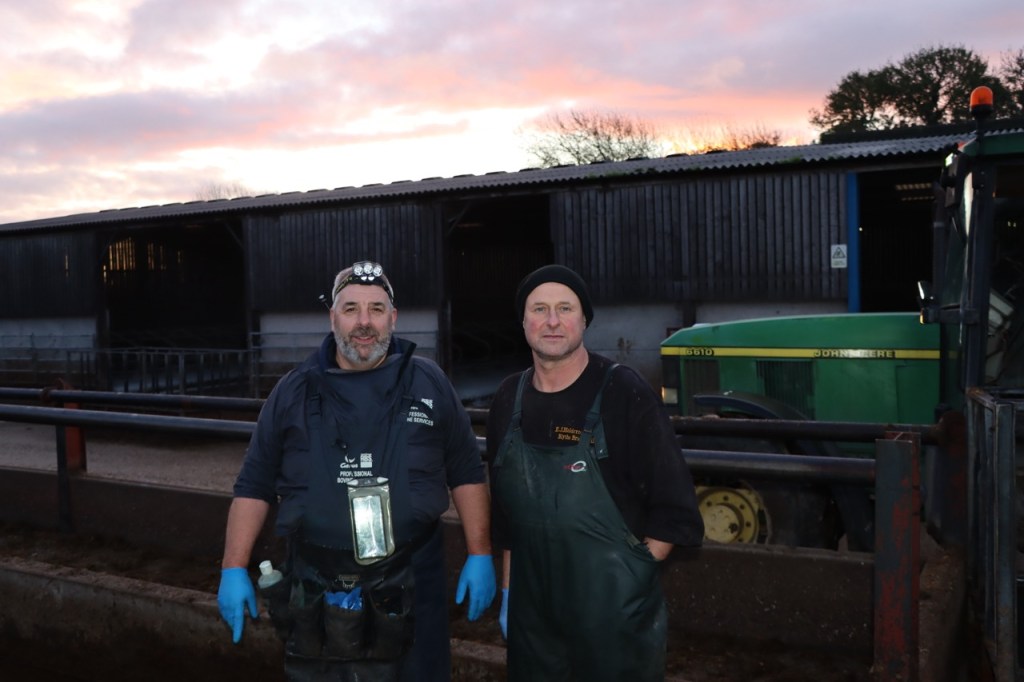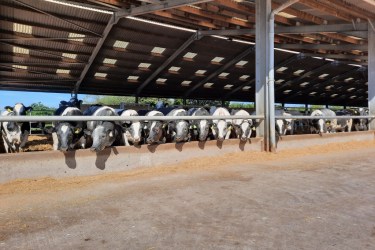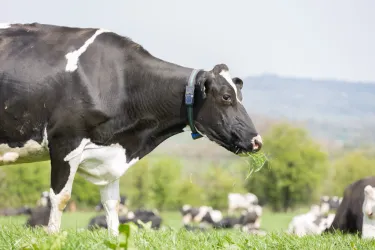“We don’t want to borrow money; we are hardworking tenancy farmers relying on teamwork. You’ve got to pay the rent before anything else, and good fertility is critical.”
These words from dairy farmer Richard Morley highlight the foundation of their success. Farming a closed herd in the heart of Derbyshire, Richard works alongside his brother Charlie and nephew Joe, supported by an exceptional team. Together, they milk twice a day and proudly supply Arla under a Tesco-aligned contract.
A team effort for fertility excellence
With an impressive herd averaging 10,000 litres, the Morleys credit their success to strong working relationships and a trusted network of experts. Their fertility strategy is shaped by a dedicated team, including Tom, their “dedicated cowman,” as well as a wider circle of advisers.
“Our local vets and consultant team are fantastic; and we have the best AI men in the world, Mike and Phil,” Richard shares, highlighting the value of expertise and collaboration. He emphasises the importance of communication, even in small ways:
“You can’t underestimate the power of a ten-minute coffee break to check in with the team.”
For Charlie, these moments of connection extend beyond business:
“Sometimes, we just have a chat about football. As season ticket holders, things have to be going well at home for us to get to the games!”
A practical approach to nutrition and breeding
During the summer and autumn months, the herd grazes before moving into winter housing around late September. Maintaining body condition is essential for successful pregnancies, and the Morleys prioritise a simple yet effective feeding strategy.
“We try not to be too fancy with supplements and vitamins,” Charlie explains. “Good grass and keeping things as natural as possible works well for us.”
The farm makes sustainable use of industry by-products, incorporating a distiller’s syrup to boost yeast in the diet, complementing their home-grown high-energy maize blend.
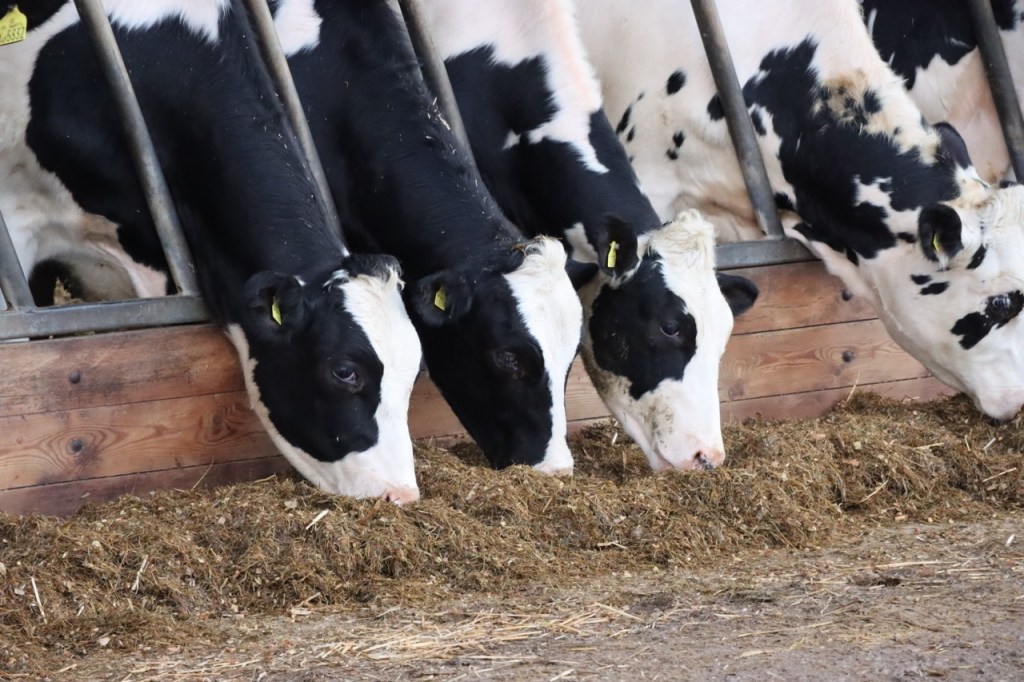
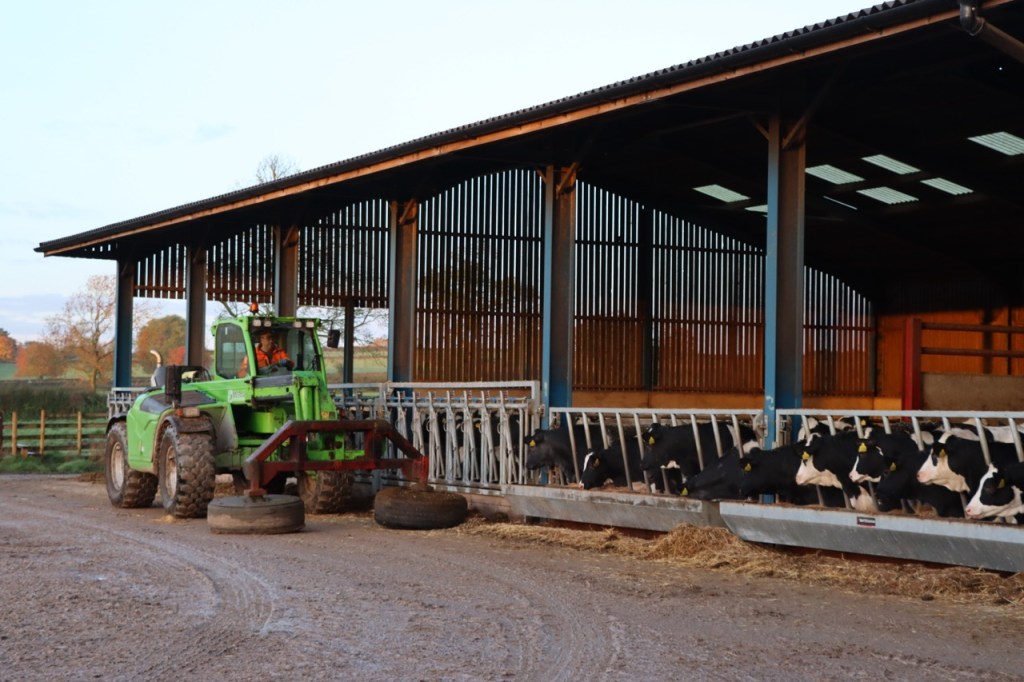
Maximising fertility with strategic breeding
Operating across two units, the Morleys manage 420 cows in milk and 70–100 followers annually. Replacements are reared at their second unit, and the family takes pride in their 30.9% pregnancy rate.
“AI is a very specialised job,” Richard notes. “With our two Genus ABS technicians, we’re getting fantastic numbers.”
To optimise fertility, the herd utilises BoviSync for insemination data management and follows a sexed and beef breeding strategy to maximise the value of every pregnancy. Genus ABS’ Genetic Management System (GMS) plays a pivotal role in maintaining herd uniformity, with breeding decisions led by long-standing partner Richard Scott from Genus ABS.
“We rely on the expertise of our RMS specialists to ensure creating pregnancies is an area where we have peace of mind.”
Their breeding strategy is clear-cut:
- Cows producing replacements receive up to two services of Sexcel
- Maiden heifers receive up to three services of Sexcel, followed by beef
- No conventional dairy semen is used, reducing dairy bull calves and increasing beef calf income
Prioritising cow comfort and wellbeing
The Morleys place a strong emphasis on minimising stress and maximising cow comfort.
“We’ve recently invested in locking yokes for fresh calvers and maiden heifers,” Richard says. “Animals have the freedom to roam and relax in straw-bedded sheds, and we keep a close eye on them as they transition to the milking herd.”
They also follow structured voluntary waiting periods:
- 60 days for first-lactation animals
- 50 days for all other cows
Adjusting this waiting period has paid off. “We increased it to give freshly calved cows time to settle back into the milking routine,” Tom explains. “We’ve seen an uplift in conception rates as a result.”
Health and fertility go hand in hand
For the Morleys, animal wellbeing is at the core of their herds performance. Udder health is a top priority, with the Valiant range playing a key role in mastitis control.
“Valiant has been a lifesaver. We use Valiant Everyday through our ADF system and switch to Pre-Foam if the challenge increases,” Richard notes.
To manage lameness, footbaths are installed throughout the farm, and regular body condition and lameness scoring help maintain overall herd health.
“With genetics and attentive management, we are improving all the time,” Tom adds.
A future built on trust and teamwork
Richard sums up the Morley family’s approach to success:
“A devoted team, clear communication, and happy cows are the essentials for profitability. I’m incredibly grateful to those who make the difference.”
With their strong work ethic, trusted team, and commitment to sustainable breeding and cow comfort, the Morleys continue to set the bar for fertility success.
Looking to improve your breeding strategy? Find your local Genus ABS representative today below.



